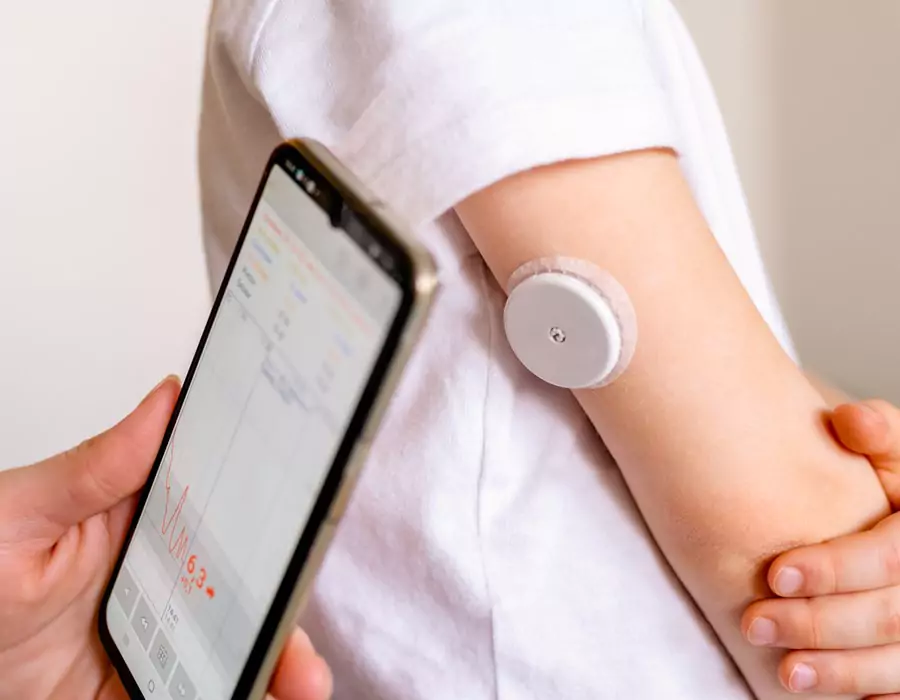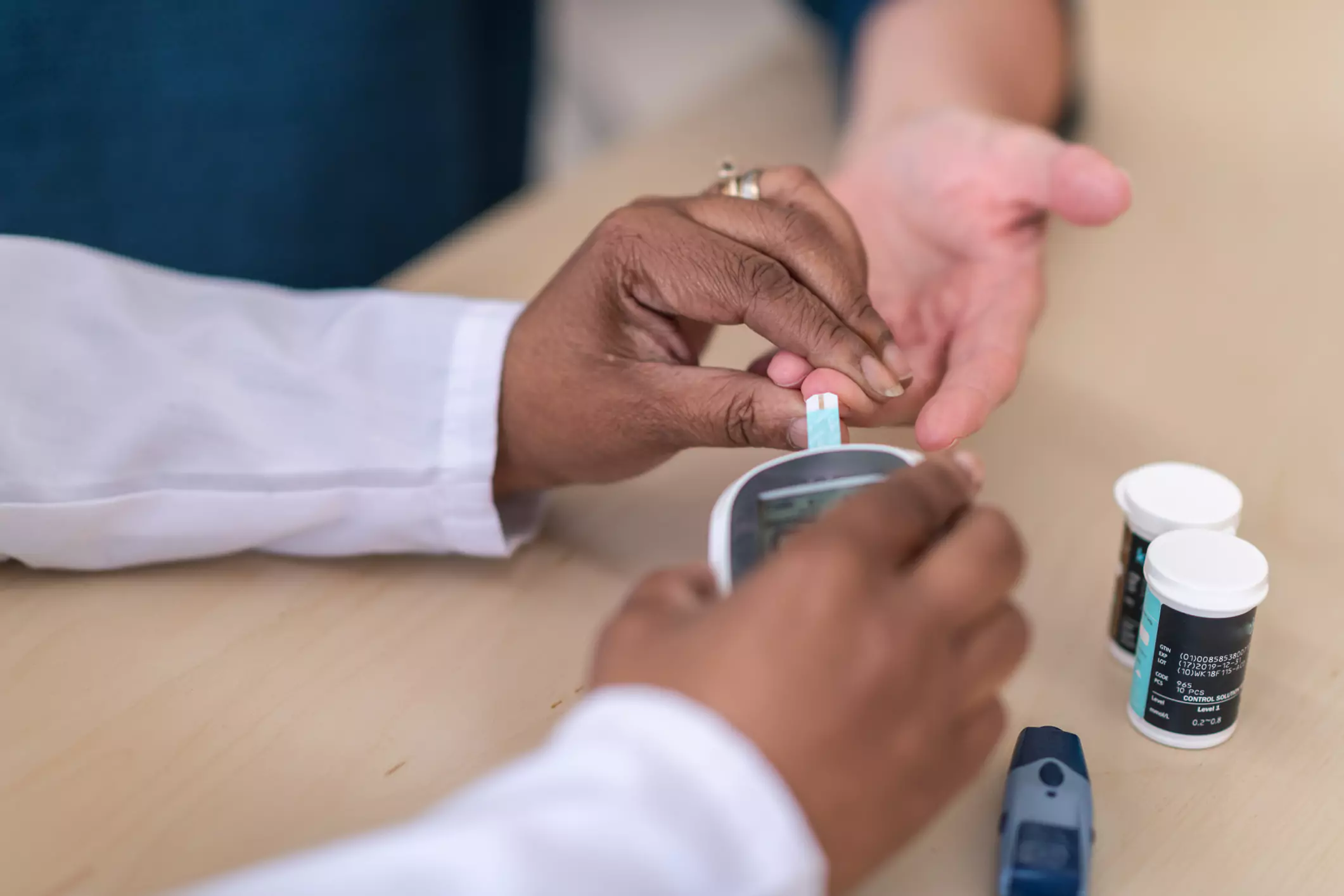






Thiamine/Benfotiamine: A Vitamin Every Diabetic Must Take


Table of Contents
- Summary:
- What Type of Vitamin is Thiamine?
- Thiamive vs Benfotiamine
- Why do Diabetics Need Thiamine As Part of the Multivitamin Complex?
- Why Is Thiamine An Extremely Important Vitamin for Diabetics?
- ATP Synthesis
- Glucose overloading causes vascular and endothelial damage.
- What is The Best Benfotiamine Supplement?
- What the Research Says: Thiamine, Benfotiamine, and Mixed Clinical Results
- What Foods contains Benfotiamine?
- Here are these foods that contain thiamine:
- Insulin resistance and Role of Thiamine/Benfotiamine in Diabetes
- Why Are Some Cells Affected by High Glucose but Not Others?
- How Does Thiamine Prevent Diabetes Complications?
- Erythrocyte Transketolase and Thiamine Deficiency
- Benfotiamine Mechanism of Action
- Thiamine/Benfotiamine Is Especially Beneficial To Prevent Neuropathy
- Why People With Diabetes Should Take Benfotiamine?
- Benfotiamine Benefits
- Diabetic Neuropathy
- Oxidative Stress
- Periodontal Disease
- Cognitive Function
- Benfotiamine Side Effects and Precautions
- Benfotiamine Forms
- Benfotiamine Dosage
- Taking Benfotiamine As A Supplement
- How Long Does it Take to See Results from Using Benfotiamine?
- Success Stories from Patients who used Benfotiamine for Health Problems
- Here are some patient success stories from other websites:
- Further Studies on Benfotiamine
- Conclusion
- FAQs
- Is benfotiamine better than thiamine for diabetics?
- Can benfotiamine lower blood sugar levels?
- How long does it take to see results from benfotiamine?
- Can I take benfotiamine with metformin or other diabetes medications?
- Are there any risks or side effects associated with benfotiamine?
Summary:
-
Benfotiamine is a fat-soluble vitamin B1 that the body absorbs much more effectively than standard, water-soluble thiamine.
-
High blood sugar causes the kidneys to excrete thiamine faster than normal, leading to a subtle deficiency.
-
Studies suggest benfotiamine may offer targeted protection for nerves, kidneys, and blood vessels.
-
Major health guidelines do not officially recommend routine use, citing a need for more large-scale, long-term studies.
-
Benfotiamine is not a cure and must never replace prescribed diabetes medication.
-
Clinical doses typically range from 150 to 300 mg per day and are considered safe for short-term use under medical supervision.
It's no surprise that vitamins are essential nutrients for our body to thrive. Among the 13 known vitamins, thiamine, or Vitamin B1, happens to be one of the most crucial for diabetics who want to keep healthy blood sugar levels.
That's why thiamine is so important! Fortunately, thiamine comes in an accessible and affordable derivative called benfotiamine -- a form of thiamine that can especially help diabetics if not lower their blood sugar levels but at least ward off side effects of high blood sugars.
And you don't need to take huge doses either; just stick to the recommended dosage, which I will tell you later and you'll be surprised how healthier your metabolism will be and how you will stay away from neuropathy and kidney disease. So if you're a diabetic, thiamine and more importantly its derivative benfotiamine should definitely have a place in your daily vitamin intake!
What Type of Vitamin is Thiamine?
Thiamine is vitamin B1. Its chemical name is Thiamine. It is a water-soluble vitamin. It plays an essential role in energy metabolism. Thiamine is found in yeast, cereal grains, seeds, brown rice, whole grain cauliflower, potatoes, oranges, liver, and eggs.
Thiamive vs Benfotiamine
Benfotiamine is quite similar to thiamine, which is vitamin B1; nevertheless, the body absorbs benfotiamine more effectively than thiamine. Benfotiamine is converted to thiamine within the body. Since benfotiamine is better absorbed by the body than thiamine, taking benfotiamine can result in an increase in the amount of thiamine that is found in the body.
Benfotiamine is like the better, smarter sibling of thiamine (vitamin B1). Even though benfotiamine is not actually related to thiamine, they still go hand in hand. The body has a way of recognizing when benfotiamine arrives – it changes the vitamin into its wiser partner so that there will be higher amounts of thiamine in the body.
Benfotiamine is quite the marvelous snake-oil salesman - it's similar to thiamine, but it's able to swindle your body into assimilating more of it than what it gets from good ol' vitamin B1. It does so by cleverly transforming itself from an impostor, benfotiamine, into its oh-so-trustworthy alter ego, thiamine.
That way, you get all the benefits that come along with increased thiamine levels and don't have to suffer the side effects that come with taking too much of this stuff. Long story short: Benfotiamine is "the greatest showman" when it comes to getting your body as much vitamin B1 as possible.
Why do Diabetics Need Thiamine As Part of the Multivitamin Complex?
When it comes to the risks associated with diabetes, thiamine is certainly part of the story. Thiamine is an essential vitamin that helps control glucose and energy metabolism in our bodies – but unfortunately, diabetics can be prone to thiamine deficiency as they tend to excrete a lot of thiamine with their urine.
This is where benfotiamine comes in - an effective thiamine supplement that has been shown to lower sugar levels slightly but more importantly to prevent various complications that come along with diabetes. Benfotiamine is an excellent way for diabetics to increase their thiamine intake and keep the symptoms of diabetes under control due to its superior bioavailability.
Why Is Thiamine An Extremely Important Vitamin for Diabetics?
The human body is complex biological machinery, and it uses food as fuel. The food contains a lot of stored chemical energy. When we eat food, our body breaks it into smaller components and makes glucose. Mitochondria turn glucose into ATP.
Mitochondria are also the main sites for ATP synthesis. They are also known as the powerhouse of the cells. ATP is an energy molecule and is also called energy currency. This supplies energy for hundreds of biochemical reactions and cellular processes.
ATP Synthesis
Diabetes is a disease that affects the processing of blood glucose. Diabetic patients are unable to use this excess blood glucose. So, when there is a lot of glucose. Unfortunately, mitochondria become overloaded.
Then, glucose rushes into the cells. Glucose needs to be converted into energy. However, mitochondria can't convert this much glucose into energy and become overloaded. In response to glucose overloading, the backup happens and leads to other pathways in the body. It further causes vascular and endothelial damage.
Glucose overloading causes vascular and endothelial damage.
In simple words, excess blood glucose causes severe damage in diabetics. It is also the main reason for complications of diabetes, including blindness, kidney diseases, neuropathy, and so forth.
What is The Best Benfotiamine Supplement?

3D Vitamin drop B1 Thiamine pill capsule.
As we discussed more absorbable form of thiamine is also being used as Diabetic remedy. It is called Benfotiamine; a fat-soluble thiamin derivative, which you can find in the vitamin B complex. The body absorbs Benfotiamine and uses it as an alternative to vitamin B1 when other B vitamins are not well-absorbed.
It is also a safe alternative for people who have difficulty absorbing thiamin from a regular diet. People use Benfotiamine as an alternative medicine for many years. It can treat diabetic neuropathy, which a common diabetes complication.
A person wtih diabetic neuropathy experiences pain and numbness in the extremities. More recently, they discovered that Benfotiamine has protective effects on nerves exposed to high glucose levels. It has the ability to lower elevated blood sugar by inhibiting transketolase activity.
Some patients suffering from mild chronic fatigue also find Benfotiamine helpful. It raises energy levels without producing jittery side effects or making you feel hyperactive. Also, Benfotiamine improves overall antioxidant status, reduces oxidative damage, and reduces blood-clotting time. It also helps increase the activity of superoxide dismutase (SOD), reducing the risk of heart disease.
What the Research Says: Thiamine, Benfotiamine, and Mixed Clinical Results
You might be wondering: what does the actual science say?
A review published in BMJ Open confirms that people with diabetes often have significantly lower thiamine levels, largely due to increased urinary loss. The authors note that restoring thiamine may help reduce the risk of complications, including neuropathy and kidney-related issues.
Another review on benfotiamine's therapeutic potential reported that supplementation may improve nerve function and reduce pain in individuals with diabetic neuropathy, especially because benfotiamine raises thiamine levels inside tissues more effectively.
However, the evidence isn’t entirely consistent. A recent meta-analysis evaluating benfotiamine for diabetic neuropathy found that while some patients experienced symptom improvement, others showed no statistically significant benefit. This means benfotiamine may be helpful for some people, but it’s not guaranteed to work for everyone.
What Foods contains Benfotiamine?
Because Benfotiamine is fat-soluble, you can find it in significant amounts only in foods that are rich in fat and oils. Problem is that many of these items are also high in carbs. I feel like God intentinally put this vitamin in some carbs to negate the possible high sugar effects of some of these foods. Since you are a diabetic you should choose the low-carb choices that have thiamine or just use benfotiamine supplements.
Here are these foods that contain thiamine:
- Whole wheat bread
- Molasses
- Orange juice
- Egg yolk
- Butter
- Chicken liver
- Cheese
- Mayonnaise
- Wheat Bran
- Banana
- Milk
- Yogurt
- Tuna Fish
- Turkey Meat
- Royal Jelly
Insulin resistance and Role of Thiamine/Benfotiamine in Diabetes

If you suffer from diabetes or insulin resistance, thiamine deficiency could be lurking around the corner. Even if you are eating thiamine-rich whole foods like whole grains and store-bought fortification of thiamine may not be enough.
To combat thiamine deficiency, diabetic patients should opt for the form of thiamine called Benfotiamine, a fat-soluble form of thiamine that is able to better penetrate the cell membrane and fight off sugar damage.
However, it is always important to take supplements from a trusted source and preferably as part of multiviamin complex including alpha lipoic acid and other B complex vitamins such as SugarMD Neuropathy Support. Although thiamine can also be synthesized in small quantities within the human body itself, supplementing with thiamine vitamin is crucial to properly manage diabetes.
Why Are Some Cells Affected by High Glucose but Not Others?
Unfortunately, some cells can no longer do much about the influx of sugar coming their way. The pancreas is getting overwhelmed and these cells have no option but to accept the sugar. The kidney cells, eye cells, and nerve cells in particular are very vulnerable to this high sugar concentration and that’s why people with diabetes are more prone to neuropathy, blindness, and kidney failure.
In order to lower the risk of this happening and reduce the symptoms, thiamine or benfotiamine type of vitamin can be used as a supplement. With the help of thiamine supplementation diabetics are able to reduce the amount of sugar coming into their body so they can have a better chance of fighting off these diabetes-related diseases if diagnosed early enough.
How Does Thiamine Prevent Diabetes Complications?
It is a well-known fact that thiamine, also known as vitamin B1, plays an essential role in maintaining overall health and wellbeing. As thiamine has been found to lower blood sugar levels, it is particularly beneficial for diabetics. Studies have shown that thiamine helps to support your body's ability to process sugar more efficiently and can help prevent cell damage often associated with diabetes.
Another form of thiamine called benfotiamine has been proven to vastly improve the metabolic responses of people with diabetes by boosting the action of a particular enzyme, transketolase. Research suggests supplementing thiamine may be one of the best ways for people with diabetes to take control of their diets and lower blood sugar levels.
Erythrocyte Transketolase and Thiamine Deficiency
People need thiamine to make sure their Erythrocyte Transketolase enzymes are functioning properly. This thiamine cofactor, however, gets absorbed less easily when people consume high amounts of sugar and carbohydrates.
Alcohol consumption also reduces thiamine absorption, leading to thiamine deficiency. To combat these vitality-sapping effects, many have turned toward supplements like benfotiamine — a fat-soluble thiamine derivative — to ensure that they're not running low on thiamine levels.
Since thiamine is necessary for insulin functioning, it's especially important for diabetics to keep their thiamine intake at healthy levels. A steady intake of thiamine in all forms can help people all over maintain controllable energy, allowing everyone the opportunity to burn glucose better than ever before.
Benfotiamine Mechanism of Action
Let’s hear it for thiamine! It’s easy to think of this vitamin as an unsung hero, but there may be something special about its synthetic form called benfotiamine. A recent discovery reveals that benfotiamine is able to inhibit several enzymes that act up when people have high blood sugar levels.
In particular, transketolase and glucose-6-phosphatase work hard to metabolize glucose, unfortunately converting it into some pretty dangerous toxins. However, benfotiamine provides a possible solution since it helps lower sugar metabolism.
This is especially beneficial for diabetics – instead of relying solely on insulin injections, they can now use benfotiamine in powder or supplement form to help with their condition. Benfotiamine has been labeled the people's vitamin - something that every person should have in their bodies- as it is a thiamine derivative known for its versatile powers.
It works to lower inflammatory processes and inhibits AGEs, advanced glycation end products which are harmful byproducts of high sugar levels. Furthermore, this powerhouse supplement also prevents oxidation of fats and oils - nothing a person needs more than those added cholesterol worries! Diabetics, in particular, can benefit from taking benfotiamine as an extra precaution against the detrimental effects of too much sugar. So keep your body running smoothly with these all-in-one vitamins and say goodbye to worrying about AGEs forever!
Thiamine/Benfotiamine Is Especially Beneficial To Prevent Neuropathy
For those of us struggling with nerve-related health issues, thiamine can come as a true lifesaver. It sounds like a vitamin tag - thiamine, otherwise known as Vitamin B1 - but it has the potential to be one of the best neuropathy supplements out there.
That's because thiamine is available in the fat-soluble and more absorbable form in supplement form called Benfotiamine, and just 300 milligrams of it could help dramatically lower your nerve pain. As if that weren't enough to get your attention, thiamine also helps with eye diseases and kidney disease to boot! So don't be afraid to give thiamine a try - you never know how much it can improve your quality of life.
Why People With Diabetes Should Take Benfotiamine?
Thiamine is a water-soluble vitamin. So, it is not suitable for easy absorption. Another problem is that people with diabetes excrete a lot of Thiamine in the urine. That's why I recommend you take Benfotiamine. It is better because it's a fat-soluble version of Thiamine. Your body will also absorb it better. The reason behind the high absorption of Benfotiamine is that our body cells are composed of cholesterol coreso , fat-soluble vitamins can be stored in our fat cells for a long time as compared to water-soluble vitamins.
Benfotiamine Benefits
Diabetic Neuropathy
Benfotiamine is helpful in the treatment of painful neuropathy caused by diabetes. Patients with diabetic neuropathy are often advised to follow a low carbohydrate and protein diet but high in good fats. As a fat-soluble form of vitamin B1, Benfotiamine can help protect nerves from damage caused by elevated blood glucose levels. A few studies have also found Benfotiamine to be effective at reducing or eliminating diabetic neuropathy pain.
Oxidative Stress
If thiamine had superpowers, it would be Benfotiamine. This miraculous vitamin has a long list of benefits for people trying to find relief from oxidative-related medical conditions. Yes, stroke prevention, cholesterol control, peripheral vascular disease (aka PVD), periodontal disease reduction and prevention of age-related hearing loss are all thiamine-friendly.
Don't miss out - it's now time to Supercharge your thiamine by supplementing with Benfotiamine! While thiamine, a B vitamin better known as vitamin B1, has been used to help people suffering from cardiovascular issues for several years, the study revealed something even more powerful: benfotiamine, a thiamine derivative.
People who took benfotiamine supplements during the study experienced a relief from oxidative stress, heart inflammation, and plaque build-up (the silent culprit behind many cardiovascular diseases such as atherosclerosis). What's more is that no adverse side effects were observed. Talk about supplementing smart!
Periodontal Disease
Who knew thiamine, commonly found in people's daily multivitamins, could play such a significant role in preventing periodontal disease? Benfotiamine, a more powerful variant of thiamine, has provided relief to periodontal disease sufferers who have seen their gum inflammation and plaque accumulation reduced significantly.
Although there may not yet be enough clinical studies to provide definitive proof of benfotiaminne's effectiveness, many people are using it as a guide to enhancing their dental health until more evidence is available.
Cognitive Function
Who knew thiamine was the answer to so many of our problems? After all, thiamine is more commonly known by its vitamin name – vitamin B1. In addition to the relief it can give us, thiamine has the potential to boost cognitive function through the use of benfotiamine, a precursor of thiamin diphosphate (TDP).
TDP is essential in cell signaling pathways that help guide people's memories. Clearly thiamine should be added to our diets if we are striving for improved mental clarity and memory abilities! Benfotiamine is an enhanced form of thiamine that could be a game changer for those suffering from conditions like nerve pain, eye disorders, inflammation and skin complications.
While the majority of research on Benfotiamine has concentrated on its role in relieving the commonly associated symptoms of diabetes such as nerve pain, this supplement may also guide others to the relief they need. With benfotiamine driving thiamine levels up and on to good health, perhaps more people could join in on the benefits this helpful vitamin brings.
Benfotiamine Side Effects and Precautions

Vitamin B1 capsule. Pill with thiamine. Dietary supplements. 3d illustration
Benfotiamine is a thiamine derivative with a reputation for providing relief from thiamine deficiencies in people who may have difficulty metabolizing straight thiamine. This encouraging vitamin is generally safe and comes with only minor gastrointestinal side effects, such as nausea, heartburn and flatulence.
Sure, it might be the opposite of the gas that gets people laughing - but when you’re feeling your thiamine-related best, you know it was all worth it! Unless there’s an allergic reaction or other adverse reactions to benfotiamine intake, it can serve as an excellent guide to thiamine relief.
Several studies state that Benfotiamine increases uric acid levels by promoting cell death in liver cells while lowering blood glucose levels. Because of this finding, there could be a risk associated with chronic use of this drug. Such as the risk of scaling or cirrhosis in the liver.
Benfotiamine causes DNA fragmentation and lipid peroxidation at toxic doses, indicating there may be a potential for toxicity with chronic use. So don't crazy and stick with the dose in SugarMD Neuropathy Support. Benfotiamine should never be taken by people who are allergic to thiamin (vitamin B1).
In addition, anyone taking calcium channel blockers like verapamil, diltiazem, or nifedipine should not take Benfotiamine because it can interact with these drugs. Benfotiamine can be taken with other medications without problems; it may even help some drugs work better. Like many other drugs, this supplement should not be combined with alcohol and should not be taken by people who are pregnant or breastfeeding without first consulting their healthcare professional.
Benfotiamine Forms
Benfotiamine is available in pill and powder form, as well as injectable fluid. Pills are usually the cheapest way to get this supplement. However, most brands of Benfotiamine pills vary in form, so there may be some quality differences between them, and it's hard to know how many of the active ingredients you'll get.
You can also purchase Benfotiamine in liquid form injected into muscles or under the skin using a syringe (like insulin injections). The advantage of getting Benfotiamine by injection is that you can easily measure how much you're taking and control your dose more precisely.
In addition, if you take very high doses of this drug (upwards of 300 mg per day), it may be more effective to get injections because the body will absorb higher doses of Benfotiamine than can be taken in pill form.
Benfotiamine comes as a powdered extract of yeast cells or as pills with pre-dissolved powder. Both forms are available over the counter and seem to work about equally well. Studies state that Benfotiamine if given intravenously (through a vein), its effects last longer than when taken orally (by mouth).
Benfotiamine Dosage
For those looking for relief, deciding on the right dosage of Benfotiamine is a breeze. This thiamine derivative (a form of vitamin B1) is used to treat conditions such as diabetic neuropathy―the painful burning or tingling sensation in the feet or hands that people with diabetes often face.
Depending on the condition and prior medical advice from your healthcare provider, the recommended dosage of Benfotiamine ranges from 50 to 300 mg/day. Consider this guide an indication of which road you should take, lest you want to travel down a bumpy road called foot pain! Research shows that results usually need about two weeks of treatment with this drug to show improvement.
The majority of studies on Benfotiamine use 300mg/day doses. Since it may take several weeks for this supplement to build up in the tissues, a it may take few months of therapy before noticeable results.
Benfotiamine is well-accepted because it is non-toxic even at high doses. But, anything that is in excess is dangerous. At toxic doses, Benfotiamine causes liver cell death through lipid peroxidation and DNA fragmentation, indicating there may be a risk for toxicity with chronic use. There have also been reports of allergic reactions, that is why it is good to start in low doses first and see how your body reacts before taking higher amounts.
Taking Benfotiamine As A Supplement
There have not been any studies on the safety of taking Benfotiamine every day long term, and so most people take this drug intermittently (1-2 times per week or month) rather than every day. Starting with an intermittent schedule, there are no known side effects associated with acute doses of up to 300mg/day which is also found in SugarMD Neuropathy Support.
However, toxic effects may start to show up at higher doses, including DNA fragmentation and lipid peroxidation. If you choose to take this drug every day long term, it may be a good idea to cycle it. You can take a week or two off from taking it every so often. Also, be sure to monitor any changes in your health. Avoid sudden stop if you've been using this drug regularly for more than a few months.
How Long Does it Take to See Results from Using Benfotiamine?
On average, studies show that Benfotiamine relieves pain after two weeks of treatment. After a couple of weeks, you can feel the improvement in sensation and peripheral nerve function. However, as with any new diabetes treatment, it is vital to check beta-cell function and glucose levels before and after starting Benfotiamine.
If you have pain in your nerves, do not take this drug without first checking with your doctor. Not all supplements work for everyone or in every condition, and the results of a particular treatment may vary from person to person. If you are interested in using Benfotiamine for a particular condition, consult with your healthcare professional or dietician to determine the best dosage.
Success Stories from Patients who used Benfotiamine for Health Problems
Here are some patient success stories from other websites:
"I had injections of Benfotiamine into my knees and found it relieved the pain in my joints." "My mom used Benfotiamine for her teeth problems, and it seemed to help her." "I find Benfotiamine tablets beneficial for my dry eyes." "Benfotiamine has helped my lower back pain." "I had a bout of shingles and found that Benfotiamine was helpful with the itching and some discomfort I was having." "I had painful neuropathy in my toes, fingers, and knees." - "Benfotiamine helped me deal with the pain of knee osteoarthritis ." "My Doctor recommended I take Benfotiamine to help repair my damaged nerve endings." "I was thrilled when Benfotiamine started helping my diabetes. I haven't been able to come off insulin completely yet but am working on it!" "Benfotiamine seemed to help with some symptoms of early MS."
Further Studies on Benfotiamine
Studies are ongoing to find out if Benfotiamine can be a potential drug to relieve severe pain. If proven, this can reduce the need for opioid drugs in cancer patients. It may also help people recover from stroke and heart attack by improving blood flow and reducing symptoms of angina, including chest pain.
Conclusion
Benfotiamine is not a vitamin that every diabetic must take, but it can be valuable for certain individuals. Thiamine and benfotiamine support glucose metabolism and help protect cells from stress, yet they are not essential for all people with diabetes. People who have low thiamine levels or early signs of complications may benefit the most.
Before beginning supplementation, it is wise to speak with your healthcare provider and consider testing your thiamine levels. If you decide to include benfotiamine in your routine, choose a product that meets high standards for quality and scientific formulation.
For expert guidance and ongoing support in diabetes care, visit SugarMD and continue your journey toward better health.
FAQs
-
Is benfotiamine better than thiamine for diabetics?
Yes, because it absorbs better and stays in the body longer, making it more effective for managing complications.
-
Can benfotiamine lower blood sugar levels?
It doesn't directly lower blood sugar, but it may help improve how your body handles glucose and reduce cellular stress.
-
How long does it take to see results from benfotiamine?
Some people notice improvements in nerve symptoms within a few weeks, while others may take a few months.
-
Can I take benfotiamine with metformin or other diabetes medications?
Usually yes, but always check with your doctor first to avoid any interactions or unintended drops in blood sugar.
-
Are there any risks or side effects associated with benfotiamine?
Side effects are rare and usually mild, such as nausea or skin irritation. Long-term safety still needs more research, so supervision is key.
Who is Dr. Ergin?
Dr. Ahmet Ergin is an endocrinologist interested in and passionate about diabetes care. Dr. Ergin earned his medical degree with honors at Marmara University School of Medicine in Istanbul, Turkey. Then, he completed his internal medicine residency and endocrinology fellowship at Cleveland Clinic in Cleveland, Ohio.
He is a board-certified Internal Medicine and Endocrinology, diabetes, and metabolism physician. He is also a certified diabetes education specialist.
Disclaimer: Any information on diseases and treatments on this website is for general guidance only and must never be a substitute for the advice your doctor or other qualified healthcare professional provides. Always seek the advice of your physician or other qualified healthcare professional with questions you may have regarding your medical condition.
Written By Dr. Ahmet Ergin
465 total articles
Meet Dr. Ahmet Ergin, a highly skilled and dedicated endocrinologist with a passion for diabetes care. Dr. Ergin earned his medical degree with honors from Marmara University in Istanbul. He completed internal medicine residency and endocrinology fellowship at Cleveland Clinic. Dr. Ergin is board-certified in Internal Medicine, Endocrinology, Diabetes, and Metabolism due to his vast medical expertise. He's a certified diabetes educator, author of “The Ultimate Diabetes Book,” and founder of “the SugarMD YouTube channel.” Dr. Ergin offers exceptional diabetes care to his patients in Port Saint Lucie, FL, helping them manage effectively. For a closer look into his insights and experiences, connect with Dr. Ahmet Ergin on LinkedIn, Instagram, and YouTube.”
Disclaimer: These statements have not been evaluated by the Food and Drug Administration. Information on this website isn't intended to treat, cure or prevent any disease. Discuss with your doctor and do not self-treat.
Products













